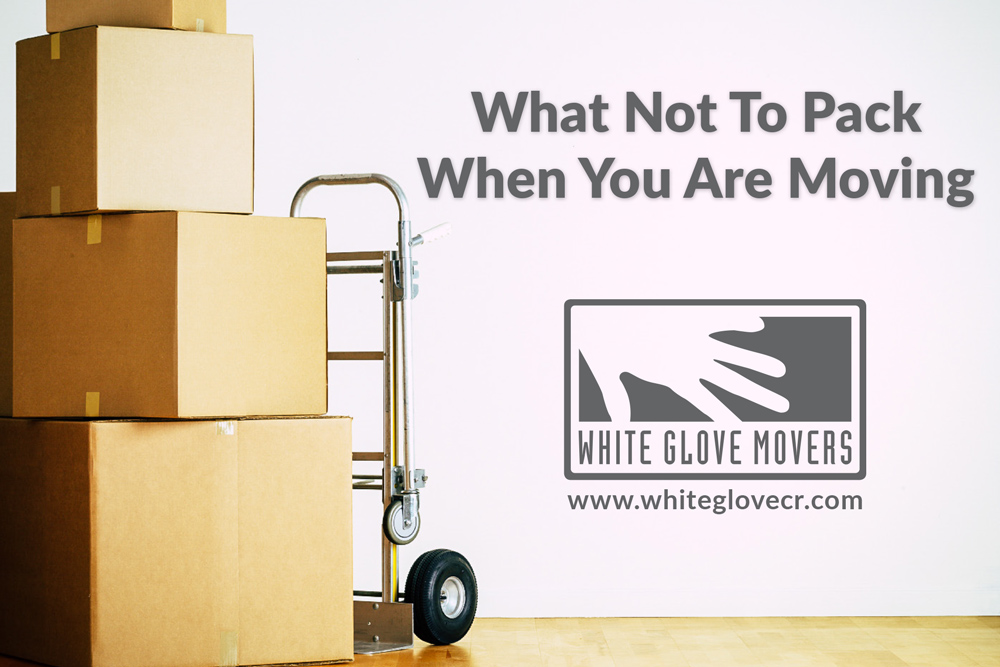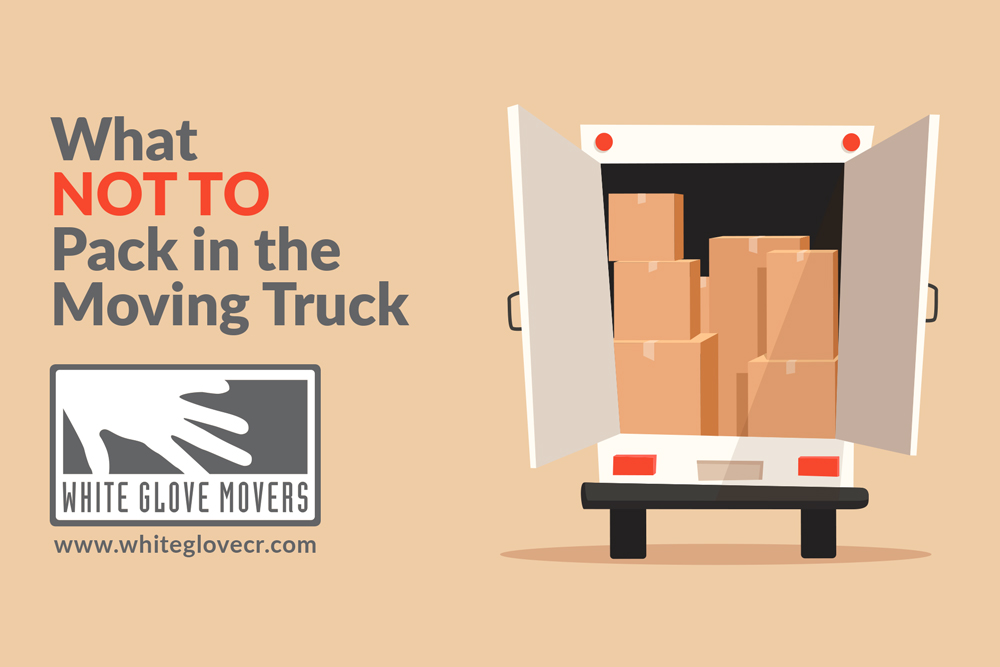When you’re getting ready for a move and are working with a residential moving crew, it can be tempting to want to pack everything up and throw it on a moving truck. However, most moving companies will give you a list of items they won’t move. You should also take into consideration that there are some items that are dangerous and should be taken care of before you move.
A good rule of thumb is to always check with your residential movers to make sure you’re not packing and transporting anything that shouldn’t be. If you’re questioning how something should be packed, ask them for their expert opinion as well.
To save you some headaches, below are some categories of items that should be handled with care or not moved at all.
Hazardous items
Dangerous and hazardous items are anything flammable, corrosive, or explosive. They’re not just dangerous for moving, though, they’re actually illegal. If you have things that fit into this category, reach out to your local recycling or pick-up service, fire station, or the closest EPA office. The staff there should be able to provide you with information regarding proper disposal. If you’d hate to see the items go to waste, ask your neighbors or family members if they could use them.
Some residential movers do move hazardous items if they’re packaged up properly. If you have full propane tanks, for example, ask your movers the best way to pack them up or move them. The best thing you can do for your moving company (and yourself) is to avoid any surprises on moving day.
Other examples include:
- Acid
- Pesticides
- Motor oil
- Gasoline
- Lighter fluid
- Fertilizer
- Paint
- Car batteries
- Charcoal
- Matches
- Nail polish and remover
- Ammunition
- Pool chemicals
- Batteries
- Loaded weapons
- Lamp oil
- Propane
- And more
High-dollar and personal items
Homes collect a lot of items that are important to us either because of their emotional or monetary value. The items that would fall into this category would be the ones you can’t live without, you know, the items that you’d grab if your house was on fire.
When you start packing personal items, be sure you want them to be in the moving company’s hands. Take the extra step to make copies of all important documents you have in your possession including identification, insurance records, licenses, etc.
Items you might want to transport yourself:
- Personal documents such as marriage licenses, passports, birth certificates, wills, and insurance papers
- Home videos
- Flight tickets
- Pictures and photo albums
- Financial statements
- Keys for the house, car, safety boxes, and safes
- Deeds
- Tax records
- Check books
- School records





